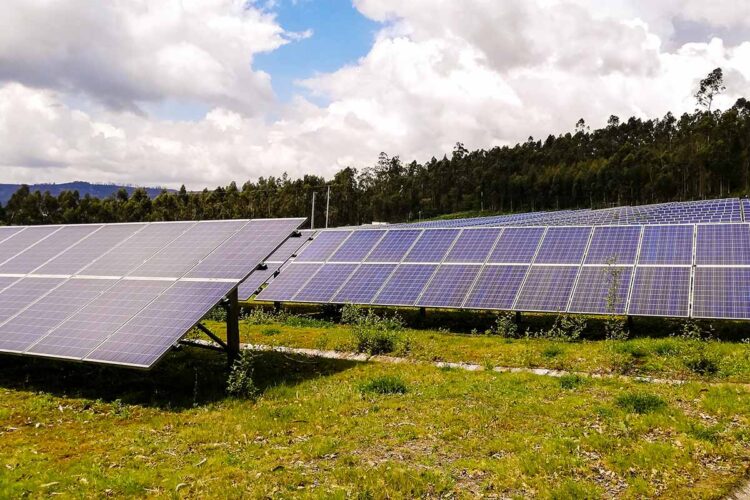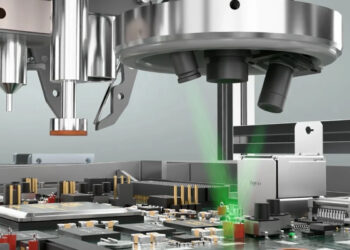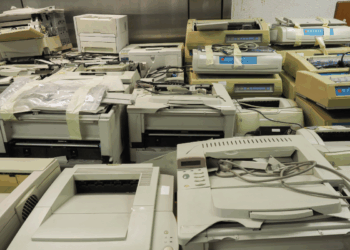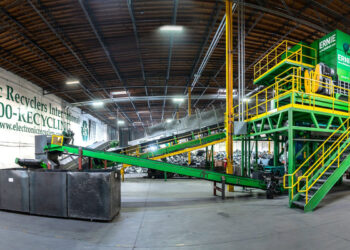Private equity firm Tide Rock Holdings has acquired Phoenix-based Global Electronics Recycling. The acquisition will help add customers in the aerospace and defense sectors as GER integrates with previous acquisition Full Circle Electronics, the latter company’s CEO said in an interview.
The amount of the transaction was not disclosed.
Tracey Haslam, CEO of Full Circle Electronics, will lead the integration of GER into Full Circle Electronics and will continue to lead the business going forward, according to a press release.
Tide Rock, based in San Diego, acquired Full Circle Electronics in 2022, and Sipi‘s ITAD assets in 2023. American Recycling Holdings, based in Modesto, California, was Tide Rock’s first recycling company acquisition, in 2021.
Of particular interest was GER’s strength in the aerospace and defense space, Haslam said, and its Phoenix location is in the heart of the sector.
GER also has experience in handling solar panels, which Haslam said presents vast opportunities for both gaining clients and learning from GER’s success in that area.
“We see solar panel refurbishing and recycling as a growth area,” she said. As solar panels reach the end of their 20- to 30-year lifespan in the next 10 years, “it can have a substantial impact.”
With the acquisition, “we can see a path to doubling capacity in the next few years, to be a 10-million-pound-a-year processor,” Haslam said, which also will help ensure consistent results for customers. “If one site gets overwhelmed, we can shift work to another, plus we can handle growth, to ensure devices get handled in real time.”
In addition, GER’s location helps to further reduce the carbon footprint of end-of-life electronics, with its proximity to the industry it serves as well as to heavily populated areas. Haslam noted that customers often are concerned about the environmental impact of transporting material all over the country.
“We’re trying to be the easy button for businesses, so that no matter where you are in the country, you can find a location and get the data and services you need,” Haslam said. One strategy is to train and develop FCE staff, then “shamelessly spread them all over the business,” decentralizing the company’s knowledge base.
Trend watch
In determining the company’s focus looking forward, Haslam looks to customers as the best source of developing trends and challenges.
For example, data destruction and privacy are top customer concerns. As such, FCE invested in its own transportation fleet to streamline and secure the chain of custody for devices that often contain sensitive data, such as military-grade machines.
The AI trend is another frequent topic for customers, in particular the need for higher processing capacity to accommodate rapidly growing adoption.
FCE staff spend a lot of time with testing managers to help ensure that the company isn’t redistributing faulty devices and to help avoid usable devices being discarded before the end of their useful life.
“We look at how we can get product back into service rather than break it down to its components,” Haslam said, adding that if the company destroys data on 500,000 devices, accurately determining the remaining life makes a big difference.
And with global electronics recycling rates still low and ever-growing volumes of devices reaching the end of their useful life, there’s a lot of space to educate users and increase recycling rates, Haslam said. To this end, FCE participates in recycling education programs, and welcomes school groups into their facilities.
FCE also has scheduled more than 50 community collection events in Florida, Arizona, Georgia and California, and offers a box program to ship consumer electronics back for recycling
“A lot of people have electronics at home they don’t know what to do with,” she said. “We’re trying to make it easier to do the right thing, because people want to do the right thing.”






















